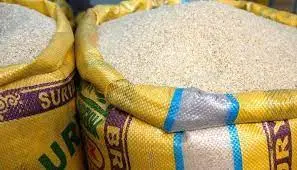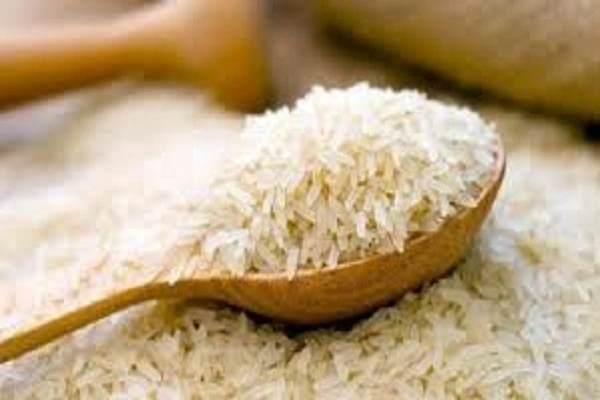Will a crate of eggs reduce to N700 from N2,700 (the current price) as Nigeria’s apex bank lifted the FOREX restriction on 43 items?
On Thursday, October 12, 2023, the Central Bank of Nigeria (CBN) in a statement said it has lifted the ban on 43 items that were initially banned from accessing Forex at the official rate.
Items that CBN lifted FOREX restriction on
Importers of the following 43 items can now access foreign exchange at the official market – Importers’ and Exporters’ Window – are:
- Tomatoes/tomato pastes,
- Palm oil products,
- Vegetable oils,
- Rice,
- Cement,
- Margarine,
- Palm kernel,
- Meat and processed meat products
- Private Airplanes/Jets;
- Indian Incense;
- Tinned fish in sauce (Geisha)Isardine;
- Cold rolled steel sheets;
- Galvanized steel sheets
- Poultry and processed poultry products;
- Wheelbarrows;
- Head pans;
- Vegetables and processed vegetable products;
- Steel pipes,
- Metal boxes and containers;
- Wire mesh;
- Steel nails;
- Security and razor fendng and poles;
- Wood particle boards and panels;
- Enamelware;
- Wire rods (deformed and not deformed): Iron rods
- Steel drums;
- Reinforcing bars;
- Wood fiberboards and panels
- Plywood boards and panels
- Tableware;
- Tiles-vitrified and ceramic
- Gas cylinders
- Wooden doors
- Toothpicks
- Glass and glassware;
- Kitchen utensils,
- Woven fabrics
- Eurobond/foreign currency bond/share purchases
- Cellophane wrappers and bags
- Soap and cosmetics;
- Clothes;
- Plastic and rubber products;
- Polypropylene granules;
Background
During the administration of Muhammadu Buhari – specifically on June 23, 2015 -the CBN led by the now-sacked governor, Godwin Emefiele issued Circular TED/FEM/FPC/GN101/010, which put 41 product categories on a list of items not valid for FOREX in the official Foreign Exchange market.

Two more product categories were added in subsequent years, bringing the total of imported product categories restricted from accessing foreign exchange at the official market to 43.
All You Need to Know About CBN’s Lifting of FOREX Restrictions on 43 Items
InfomediaNG stumbled upon an explainer by the apex bank:
What was the aim of the restrictions?
The restriction was aimed at:
- reducing foreign exchange demand for products that could be locally produced,
- improve employment generation and
- to conserve foreign reserves
On assumption of office, the new management of CBN led by Yemi Cardoso said:
“Exporters of all the 43 items previously restricted by the 2015 circular referenced TED/FEM/FPC/GEN/01/010, and its addendums are now allowed to purchase foreign exchange in the Nigerian foreign exchange market.”
Was there an import ban on these products?
No. There was only a restriction on buying FOREX in the official market to import these items.
View:
This means that importers who could afford FX at the parallel market could import these 43 items.
But then, it is on record that it was difficult to import the above items when on October 14, 2019, the then Comptroller-General, of Nigerian Customs Service, retired Col. Hameed Ali said:
“For now, all goods, whether illicit or non-illicit, are banned from going and coming into Nigeria.”
The Guardian Nigeria
So, technically, importation was more difficult during the regime of Buhari when no adequate measures were put in place to make things easier for local production.
Why is the CBN now lifting the restrictions?
An EXPLAINER by the apex bank, the restrictions pushed importers into the parallel market, which contributed to the surplus demand for FOREX, thereby weakening the parallel-market exchange rate and pushing up prices.
What does the CBN want to achieve now?
Nigeria’s apex bank wants to promote orderliness and professional conduct by all Nigerian Foreign Exchange Market participants to ensure market forces determine exchange rates on a Willing Buyer — Willing Seller principle.
Will it enhance unification?
CBN says YES. It wants a unified market for FOREX with flexible and transparent pricing.
Will it impact price stability?
Yes, the CBN wants to ensure price stability and is seeking to boost liquidity in the Nigerian Foreign Exchange Market.
CBN is optimistic the distortions to moderate as liquidity improves.
What are the implications of removing the FX restriction?
Monetary Policy tools become more effective with the attainment of a unified, well-functioning market for FX, where pricing is based on a willing-buyer and willing-seller system. With this, the CBN’s core functions and mandates become realisable.
The willing-buyer and willing-seller system allows the exchange rate to adjust to clear the market and ensure that there is always supply.
In recent months, the widening premium between the offidal rate and the parallel market indicates that the rate has not been setting a clearing price.
Importers of these products rely on the parallel market to source FX for importing these goods.
This puts additional demand pressures on the parallel market, thereby widening the gap with the official rate and permanently segmenting the market.
Removing these restrictions eliminates the need for importers of these products to go to the parallel market, reducing the pressure on the naira.
The hitherto FX restrictions had implications on inflation, causing the prices of affected goods to increase.
Will this policy benefit local production?
Some Nigerians believe that allowing importers of items to access FOREX at official market for items that could produced at home may push them out of the market.
Local production will benefit from cheaper imported inputs, and consumers will benefit from cheaper retail products. The policy is suitable for a unified FOREX market and positive as well for inflation.
It is expected that employment generation will be boosted as closed factories re-open. Price stability will benefit the economy and the standard of living in general.
Corporate Communications Department, Central Bank of Nigeria.
Reaction of some Nigerians
All importers of certain items that can be produced at home to access the official FOREX rate at the I & E Window has not gone down well with some Nigerians while some hailed the new policy.
Here are a few of them:
Reacting, Kalu Aja, a Personal Finance Expert and Investment analyst expressed his excitement about lifting of FOREX restrictions on 43 items by simply tweeting:
“I like this from @cenbank”, and later added, “CBN has essentially made the fx market a true willing buyer, willing seller market.”
Junior Patrick:
“How does this help fx liquidity? more demand on the I&E window means the quoted $/N rate goes up correct?”
Adejimi Isafiade:
“Cement importers’ access to Forex is good but Dangote will compete with stocks from Zambia, Ethiopia, Kenya & others. Prices only come down if Govt puts eye out for monkey business Rice price won’t come down if tariffs don’t.. PBAT won’t touch tariffs for political reasons.”
Austin John:
“My question is would this policy reduce suffering, would things be cheaper, would the dollar go down?”
A former Senator, Shehu Sani:
“Lifting of the ban on importation of Toothpicks, Cement and other agricultural products that we can produce at home is a disastrous economic strategy. The nation’s scarce forex should be used to support local production not importation. The new CBN Boss should think of better ways.”
Olamide @HOLARMEEDEY1 :
”There is no better way at the moment senator. If we produce rice and we still buy rice at 50k per bag then something is wrong somewhere. Let there allow people to import rice and you will see if the price of rice will drop or not. This is not too good on the long run but I believe it is for the stability of rates.”
Godfrey Egedegbe:
“It depends on the plans which I haven’t seen yet. This can be controlled with import duties. (Fiscal policies). Again, since the inception of the policy, how many tooth pick factories have been set up in Nigeria for instance?”
Conclusion:
Will the lifting of FOREX restrictions on the 43 items reduce the price of a bag of price from N48,000 back to N7,500 when the ruling All Progressive Congress (APC) took over power in 2015?
Will the price of a bag of cement drop from N5,500 to N1,200?
There are some of the questions on the minds of an average Nigerian whose more than 50% of earnings go to consumption.


